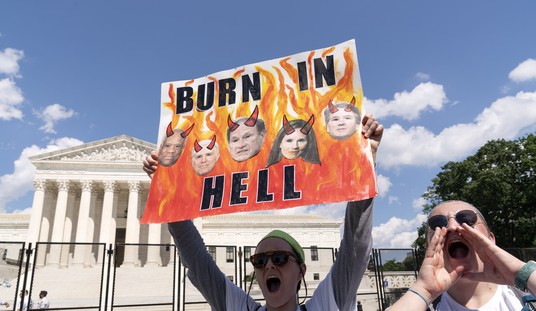In the Year 2109: Will Books Be Found in a Museum or a Library?
I recently spoke to the Association of Jewish Librarians of the New York metropolitan area. I did so at the Park East Synagogue, on a gloriously sunny day in Manhattan. Surrounded by glass walls of books, and the occasional sounds of happy children, I knew that I would be with cultured, cultivated people and I therefore decided that I could not just present a standard lecture on The New Anti-Semitism, the title of my 2003 book.
Starving Jews in Nazi ghettoes kept their libraries open; they continued to check books out and bring books back. I decided that I had to talk about books. After a kind introduction by Roz Friedman, President, AJL-NYMA (Association of Jewish Libraries-New York Metropolitan Area), here’s a bit of what I said.

Roz Friedman introducing Phyllis
Thank you so much for inviting me to speak here.
Like you, I love books. I love our sacred Jewish texts and the many splendid commentaries that accompany them, but in truth: all leather-bound, gold-embossed books call out to me. Verily, I am a person of the Book. I read them, I write them, I consume them. I love libraries, their respect for work done in silence and solitude, the quiet solicitousness of librarians, their efficiency and kindness. I love fine writing, great writing, the kind that lasts.
A book lover lives an enchanted life. She is someone who can, in an instant, escape her ordinary life, travel to any country on earth, time-travel to any century; she can enter a peasant’s hut or a king’s bedroom, witness a childbirth, a love affair, a murder, a coronation. A book lover is someone who is never exactly lonely, someone who probably believes that fictional characters are more real, more alive, than “real” people are, and that their stories are as important as the stories of our “real” lives.
If I want to know something about someone, I’ll find out what books they’ve read or are reading. Then, I’ll inquire about their childhoods.
I admit it. I eat books. I possess them. I write in the margins and on the blank front and back pages. I plant my post-its everywhere. Unlike a librarian, I am no longer willing to lend my books out. They are part of my daily life. At any given moment, my writing might require just that book. Also: They are so…”used,” so lovingly battered. How can they unashamedly leave home? In my lifetime, whenever I’ve made a major geographical move, I have been forced to give away books—anywhere from 2,000-10,000 at a given time.
Once, 1000 books of mine were held up at the Khyber Pass—but that’s a story for another day. Actually, I have written about this adventure in one of my books and may expand it into a Memoir. You may find it in my book, The Death of Feminism. What’s Next in the Struggle for Women’s Freedom.
I began reading when I was three years old and began writing when I was eight years old. My first poem was published when I was seventeen years old and my first article when I was twenty three years old. I decided to get a Ph.D and became a professor-psychotherapist (a “Viennese witch-doctor”) in order to support my writing habit.
I’ve been publishing for nearly fifty years now. I’ve published thirteen books and written fifteen. I’ve worked with many major publishing houses. As we all know, many things have really changed. There’s a lot less money lying about. Newspapers are shutting down. Small bookstores are shutting down. The chains rule. Buying online rules. Discounts rule. Even some library branches are shutting down.
But mainly, I fear that books, and the habits of thought that reading shapes, the time it takes to shape such habits of thoughtfulness, may rapidly be going out of style. Technology, youth, and marketplace demands have conspired in the minimization of books as we’ve known them. I fear that one day, our books may reside in museums, not in libraries.
Younger people prefer books on kindle and online. Even in an era of Book Clubs, people in general still prefer quick books, easy books, books with a “point,” especially books by celebrities which are often ghostwritten by ghosts who are not great writers. Books that can be listened to while driving, books that are easy to market, books that “sell,” bestsellers that can be turned into blockbuster movies, videos, small YOUTUBE sensations, maybe even into tee-shirt logos. Some people prefer blogs—some prefer twitter.
I fear that our traditional aesthetic and intellectual standards, both for fact checking and for the quality of writing, has plummeted. Short is now sweet, long is out. Anything goes on the internet. There’s no mediator, no editor, no expert, no grown-up in charge.
We are shortchanging the coming generations by accustoming them to books-as-information, books packaged as entertainment, preferably presented visually–easy for people with a culturally enforced attention deficit disorder, or who multi-task while they read (!)–this is the rapidly incoming fashion. Everyone’s articles can be published online whether or not they have been edited for grammar or accuracy. Is this democracy in action or the triumph of Big Lies and foolish vanity? Clearly, it’s both.
The truth is: I love blogging. I publish three articles a week, every week. Such deadlines demand enormous discipline. I read ten to twenty newspapers and an additional 40-50 articles every day in order to be “up on the news.” I do this because there are moments in history when writers, (who might rather be working on long books), must take a visible, immediate, and ongoing stand against evil and injustice. This is one of those moments. The internet allows me to do so.
What happens when a writer evolves, deepens, or changes her mind about certain things? What happens when a writer: This one, decides to stand up for the Jews, for Israel, for America, for the truth, for the virtues and traditions of Western civilization? What happens when a writer decides to oppose fascism and totalitarianism? And to criticize Islamic gender and religious apartheid and jihad—and will still not surrender her feminist ideals?
Why, all happy Hell breaks loose…
————————————————
And then I spoke freely about how ideas matter and about the consequences of sharing ideas with the world. I did a brief reading from The New Anti-Semitism.

Phyllis reading from The New Anti-Semitism.
It is unconscionable that such gentle, educated, Jewish people are still the targets of so much hate. Yes, Jews are also thieves and scoundrels but they are in the minority.
One woman, who turned out not to be a librarian, asked me to comment on the Golden Age in which Jews, Christians, and Muslims all lived together in harmony. I told her that many scholars now strongly dispute this. We had quite a spirited discussion.

The audience
One librarian said that she’d lived in Israel but, after fifteen years, had missed her family in New York and had returned. She admitted that once, she’d had dreams about peace that have been chipped away at, tarnished, even shattered. She asked me what I thought about this.
“Don’t give up your dreams or your ideals, simply allow reality a place at the table. Anyway, Jewish dreams, Jewish ideals belong to a Messianic Age. We’re not there yet. Our job is to take up our places in the great chain of Being, to “love or regard our neighbor as we love and regard ourselves,” to be kind to others, try to do no harm, to do some good on earth, and to walk humbly with God.”
All the rest is commentary.








Join the conversation as a VIP Member